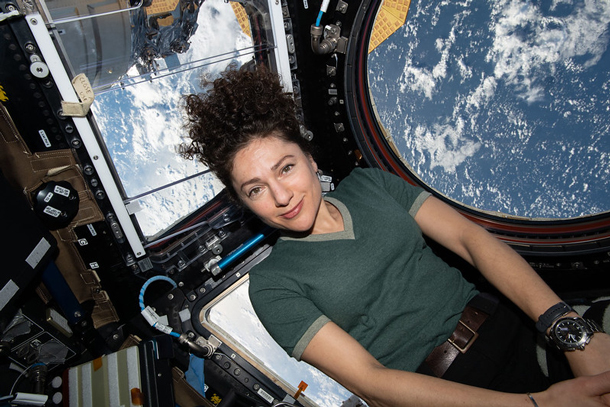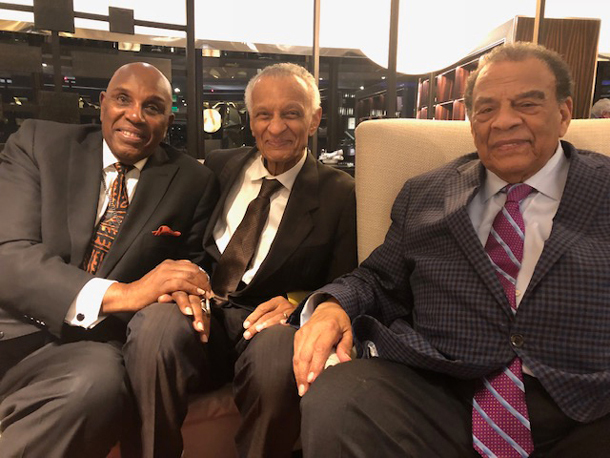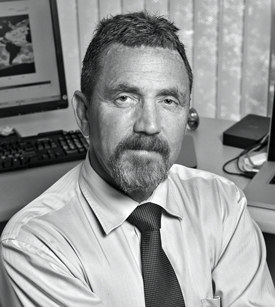Reflecting on 50 Years of Earth Day
Air Date: Week of April 24, 2020

NASA astronaut and Expedition 62 Flight Engineer Jessica Meir poses for a portrait inside the International Space Station's "window to the world," the cupola, on April 12, 2020. The orbiting lab was flying above the middle of the Pacific Ocean at the time this photograph was taken. (Photo: NASA Johnson, Flickr CC BY-NC-ND 2.0)
This year, Earth Day turns 50. And from humble beginnings Earth Day has grown into the world’s largest secular holiday, celebrated around the world each year by more than a billion people. Activists, scientists, and pastors alike share their reflections for this special Earth Day.
Transcript
CURWOOD: From PRX and the Jennifer and Ted Stanley Studios at the University of Massachusetts Boston, this is Living on Earth. I’m Steve Curwood.
To honor the 50th Earth Day organizers originally planned massive rallies around the United States and the world. But the Coronavirus pandemic made that impossible. So, instead, the Earth Day celebration went online with virtual teach-ins, musical performances, lectures, and speeches, near and far.
MEIR: From the International Space Station I am NASA astronaut Jessica Meir, observing with all of you the 50th anniversary of Earth Day. During my stay here on the ISS, one of my favorite activities was to look out of the window and admire our beautiful home planet, taking a moment to appreciate the extraordinary diversity of ecosystems and life in Earth's cradle. This year marks 50 years of a concerted effort to protect our fragile environment and conserve the natural balance of Earth's interconnected systems. Using that knowledge to live sustainably on our home planet, protect lives around the world, and adapt to natural and human-caused changes. Congratulations and thank you, to all those supporting and protecting our earth on this 50th anniversary of Earth Day.
IMO: Hi, my name is Gerald Imo, I coordinate a team of volunteers and organizations towards achieving groundbreaking Earth day events in Nigeria. Earth day to me is an opportunity for everyday Nigerians to speak out about environmental and climatic issues that are making the earth less habitable for us, and all forms of life that exist within Nigeria. It’s also an opportunity to shake up our government and companies, both national and international, and awaken them to take responsibility for the environment.
REV. DURLEY: This is the Reverend Dr. Gerald L. Durley, I live in Atlanta, Georgia. I’m Chair of the Board of Interfaith Power & Light, and for years and years, I was a civil rights leader and marcher with Dr. Martin Luther King, Jr. I feel that the environmental movement is almost the same as what we went through in the 60s – 61, 62 – with the civil rights movement, because in those days, we had a constitutional right to be able to ride in the front of the bus, or buy houses where we could, or eat in a certain place. But we were being denied those rights, so we had to protest, and we had to march. But constitutionally we were given those rights. In the climate environmental movement, everyone has a constitutional right to clean water and toxic-free air. But we are being denied that because of the fossil fuel industry and many of the energy companies, so we’ve got to use some of the same tactics by getting out there and coming together across racial lines and across faith lines to stand up for our constitutional rights so that we can sustain the planet.

Rev. Gerald Durley (left) with fellow civil rights advocates C.T. Vivian (middle) and Andrew Young (right). (Photo: Courtesy of Rev. Durley)
We never left a movement or a meeting in Selma, in Birmingham, and Mississippi, unless we came together, and sometimes Martin would be in the middle of it, or Andrew Young, and we'd pray for the insights, we'd pray for the wisdom, we'd pray that we would say the right thing at the right time for the right person. And that's what we've got to do right now. We've got to speak truth to power to understand that it's only when we come together, as a human body together, that we can begin to appreciate the animals and the insects and the birds and the bees and the trees because we were all initially created by a divine deity that said, I created all of you in my own image. Let us take care of the beautiful Earth that God has created for us. And that's in every single religion and every single faith.
SANTER: My name is Ben Santer, and I'm a climate scientist at Lawrence Livermore National Lab in Livermore, California.
Nearly 25 years ago, my life changed. 25 years ago, I was in Madrid, in the beautiful Palacio de Congresos. And I was part of the Intergovernmental Panel on Climate Change or IPCC. The role of the IPCC is to advise the governments of the world about the physical climate system, the causes of climate change, the likely impacts of climate change on stuff we care about: human health, agriculture, water, resources, energy.
And after two years of work, there we were in Madrid, roughly 100 governments from all over the world and several hundred scientists trying to finalize the language and at the end of those three days in Madrid, we finalized this summary for policymakers. And the bottom-line finding was 12 words. “The balance of evidence suggests a discernible human influence on global climate.” Those 12 words changed the world. It was the first time that the international scientific community spoke with one voice and said, we see the scientific equivalent of the handwriting on the wall. Humans are no longer innocent bystanders in the climate system. Humans are actively changing the climate by burning fossil fuels and increasing levels of heat-trapping greenhouse gases in the atmosphere.

Ben Santer is a Climate Researcher at Lawrence Livermore National Laboratory. (Photo: Courtesy of Ben Santer)
A lot of powerful people and a lot of powerful countries and corporations did not like that balance of evidence finding. I found myself under attack. There were investigations in Congress, there were calls for my dismissal with dishonor from my position at Lawrence Livermore National Lab, and I found myself in the position of defending the balance of evidence finding and the scientific process by which it had been reached.
So 25 years ago, I learned an extremely important personal lesson. Science matters. Words can change the world. The work of scientists, in trying to understand human effects on climate is critically important. We ignore science at our peril. How important those lessons seem today in the world of COVID-19 when we have to pay attention to science, in order to make wise decisions on how to diminish risk, reduce risk to millions of individuals, billions of individuals all over the world.
So, on Earth Day, I've had an opportunity to reflect on that lesson learned 25 years ago, and the importance of science and the importance of standing up for science. There is no point in being a climate scientist or an epidemiologist if you're unwilling to defend that hard-won scientific understanding. So it seems wise to reflect on these things on Earth Day. And also to recognize that the shape of our climatic future is something that concerns all of us. And something that all of us has some say in determining the kind of world that our kids and grandkids grew up in. That's not just a decision for the rich and powerful for a few politicians. That decision is for all of us. We all have some say in the shape of the world that we live in and our kids and grandkids will live in.
CURWOOD: That was climate scientist Ben Santer. We also heard from Reverend Gerald Durley, activist Gerald Imo, and astronaut Jessica Meir. We’ll have more from the virtual Earth Day celebrations later in the Broadcast.
Links
Earth Day | “Earth Day at Home”
#EarthDayatHome with Jessica Meir on the Space Station
About Interfaith Power and Light
About Faith Climate Action Week
Climate One | “What it’s like to be a Climate Scientist”
Click here to read stories by Ben Santer published in Scientific American Magazine
Living on Earth wants to hear from you!
Living on Earth
62 Calef Highway, Suite 212
Lee, NH 03861
Telephone: 617-287-4121
E-mail: comments@loe.org
Newsletter [Click here]
Donate to Living on Earth!
Living on Earth is an independent media program and relies entirely on contributions from listeners and institutions supporting public service. Please donate now to preserve an independent environmental voice.
NewsletterLiving on Earth offers a weekly delivery of the show's rundown to your mailbox. Sign up for our newsletter today!
 Sailors For The Sea: Be the change you want to sea.
Sailors For The Sea: Be the change you want to sea.
 The Grantham Foundation for the Protection of the Environment: Committed to protecting and improving the health of the global environment.
The Grantham Foundation for the Protection of the Environment: Committed to protecting and improving the health of the global environment.
 Contribute to Living on Earth and receive, as our gift to you, an archival print of one of Mark Seth Lender's extraordinary wildlife photographs. Follow the link to see Mark's current collection of photographs.
Contribute to Living on Earth and receive, as our gift to you, an archival print of one of Mark Seth Lender's extraordinary wildlife photographs. Follow the link to see Mark's current collection of photographs.
 Buy a signed copy of Mark Seth Lender's book Smeagull the Seagull & support Living on Earth
Buy a signed copy of Mark Seth Lender's book Smeagull the Seagull & support Living on Earth

